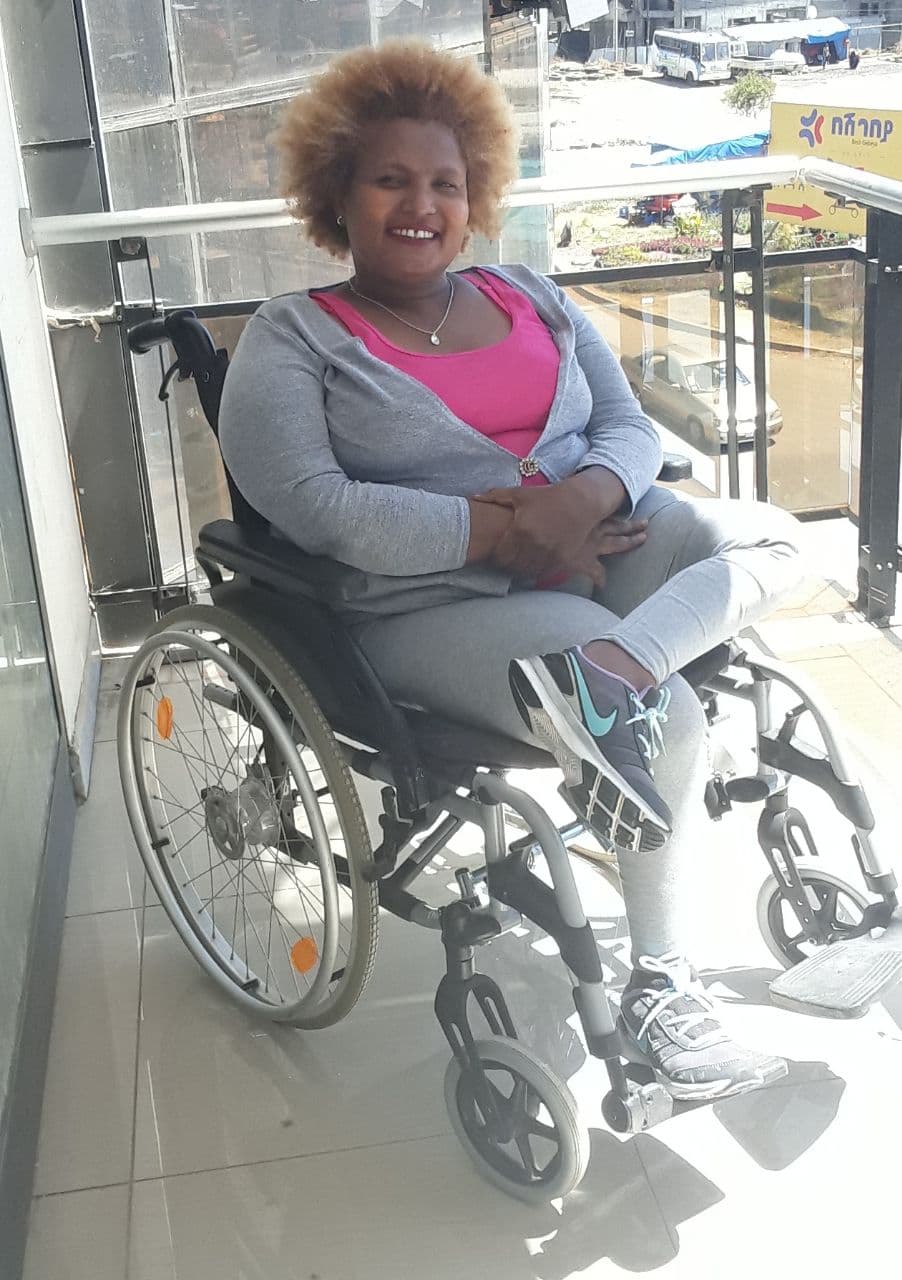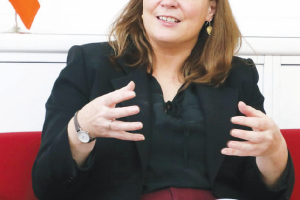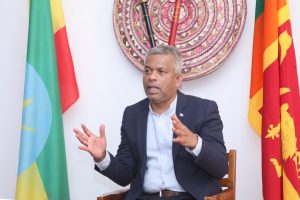
BY BETHLEHEM BEDLU
Zenebech Getaneh was born in Gohatsion, North Shoa Zone of Oromia State and raised in Addis Ababa. She has a BA degree in Management and a diploma in accounting field of study.
She has served for more than a decade in various government institutions. About 12 years ago, she joined the Ethiopian Women with Disabilities National Association (EWDNA). Not only she was a member there but she has also served as board member for close to eight years.
During her stay, she was also chosen to be the President of the National Association. She served as a President for four years. Now, she is a member of the Association and presently, she is working in Vital Registration Office of Bole Sub City.
The
Ethiopian Herald had a short stay with the former President of the Association
to discuss her life and work related experience and journey. Enjoy your
reading.
Herald: When did you start participating in Women with Disabilities Associations?
Zenebech: I joined the Association about twelve years ago. EWDNA is a local, non-profit organization based in Addis Ababa. It was established in 2002 by eight women (seven with disabilities).
Having various branch offices in Oromia, Amhara, SNNPRS, Harar and Dire Dawa, the Association has grown to become an organization with nine branches and over 10,000 members nationally. I have been a great participant in the Association and was among the board member as well as a president.
Herald: What is the major activity of the Association?
Zenebech: Our utmost priority lies on becoming the voice for women with disabilities in the country. To attain this goal, we are doing our best to be included in social, political and economic areas in the country. Because, we know that we should not be left behind.
We are also striving not only to be beneficiaries but to also contribute our share and benefit our country. We want to prove the wrong assumptions that persons with disabilities are only receivers wrong.
The Association is also working so that women with disabilities enjoy their full rights without any discrimination.
Creating access to education, work and other socio-economical services is the other area that we are working on.
Herald: How is being a member of the Association benefits WWDs?
Zenebech: As a national Association, we are the voice for the women with disability across the country; however, we take into account that we are also organized with women who are willing to take a step and stand up for their rights.
With this thinking, our Association offers psychological treatment, maternal healthcare as well as life skill trainings for its members.
With the deep understanding of the benefits in providing psychological treatments, they have always been given the priority in the Association. We believe that the treatment is essential to our members as it uplifts their self-esteem and help them face stigma in their daily lives in a positive manner.
We also strongly believe that changing the deep rooted ill thinking towards equality is critical as it enables women play a significant role in economic development.
To this effect, we make available income generating trainings that would help them become self-dependent.
Herald: What do you think are the major challenges that most WWDs encounter?
Zenebech: In our country’s context, the discrimination and stigma that most women with disabilities encounter begin at home. So these experiences oblige most women with disabilities to stuck at home which lead them to shoulder household chores and be easily targeted for sexual violence.
That is why we consider the discrimination towards WWDs as a double discrimination since it places them at higher risk of Gender- Based Violence (GBV), sexual abuse, neglect, maltreatment and exploitation.
Some people with disabilities also face difficulty accessing healthcare as it is hard to communicate their concerns to doctors. They even pass away without having anyone understanding their pain.
Herald: How do you value the support that is being provided for PWDs in general and WWDs in particular by the government?
Zenebech: We are very appreciative of the government’s commitment to include persons with disability in every sphere. However, much effort is still needed to address the difficulties that we face in daily basis.
Therefore, we call on the government and concerned bodies to ensure the inclusiveness of PWDs in general and WWDs in particular, to let them enjoy their rights fully and involve them in the socio-economic development.
By understanding the double hardships that WWDs going through, special measure needs to be given for gender equality and inclusiveness in all sphere of the country.
It is important to take in to account that each disability requires different needs depending on the magnitude of disability they have. In order to address the overall problems, the government should be ready and willing to ensure the proper implementation of legal and policy issues.
Herald: What are hoping to share with our readers?
Zenebech: Disability is not something that we can run away of. As the saying goes, it is something that we carry it in our pocket in every step. Having this mentality, not only helps to be open-minded in understanding the real situation but it would also help them contribute their role in addressing the major challenges we have.
The issue of disability should not be left for a single body. Creating enabling environment and inclusiveness should be taken seriously. If we want them to constitute their share, we have to enable them by creating access to education, healthcare, employment and infrastructural activities.
We want to live-in in a world where we can enjoy equal rights and be successful at what we want to accomplish in life.
The Ethiopian herald December 26/2020




